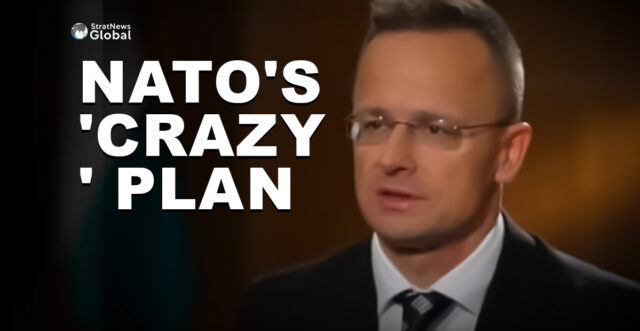BUDAPEST: Hungary will not participate in NATO’s long-term plan to aid Ukraine, its foreign minister said on Wednesday, calling the plan a “crazy mission”.
The remarks come hours before the visit of Chinese President Xi Jinping to Budapest. China is seen as an ally of Russia, which launched its “special military operation” in Ukraine in February 2022.
Foreign Minister of Hungary: President Xi’s visit will open a new chapter in bilateral relationship pic.twitter.com/JUson9A8c6
— T-House (@thouse_opinions) May 8, 2024
NATO allies agreed in April to initiate planning on long-term military support for Ukraine against Russia’s invasion, through setting up a fund worth 100 billion euros ($107 billion).
Under the plans, NATO would take over some coordination work from a U.S.-led coalition known as the Ramstein group.
Hungarian Foreign Minister Peter Szijjarto reiterated the government’s earlier opposition to the plan. “Hungary will stay out of NATO’s crazy mission despite all the pressure,” he told a Facebook-live event in London.
Government spokesman Zoltan Kovacs, responding to NATO’s initiative last month, said on X that Hungary would back no NATO proposals that “might draw the alliance closer to war or shift it from a defensive to an offensive coalition”.
Relations between Budapest and NATO have soured because of Hungary’s foot-dragging over the ratification of Sweden’s NATO accession – finally passed by Budapest in March – and also over nationalist Prime Minister Viktor Orban‘s warm ties with Moscow despite the Russian invasion of Ukraine in 2022.
The U.S. envoy to Hungary said earlier that NATO allies are warning Hungary of the dangers of its “close and expanding” relationship with Russia and if this is Budapest’s policy choice “we will have to decide how best to protect our security interests”, David Pressman said.
(REUTERS)
In a career spanning three decades and counting, Ramananda (Ram to his friends) has been the foreign editor of The Telegraph, Outlook Magazine and the New Indian Express. He helped set up rediff.com’s editorial operations in San Jose and New York, helmed sify.com, and was the founder editor of India.com.
His work has featured in national and international publications like the Al Jazeera Centre for Studies, Global Times and Ashahi Shimbun. But his one constant over all these years, he says, has been the attempt to understand rising India’s place in the world.
He can rustle up a mean salad, his oil-less pepper chicken is to die for, and all it takes is some beer and rhythm and blues to rock his soul.
Talk to him about foreign and strategic affairs, media, South Asia, China, and of course India.





